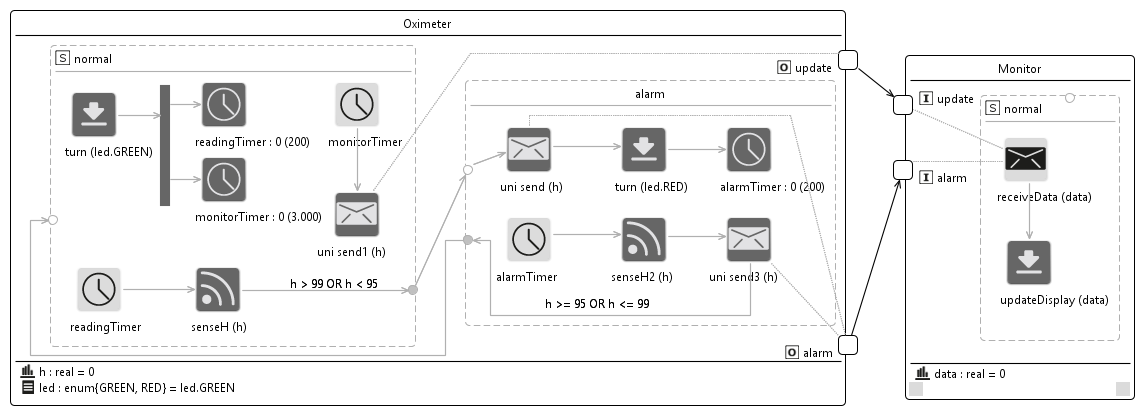The SAML modeling language allows designers to define the software architecture of the WSN application. The software architecture of a WSN is defined as a set of interacting components which exchange messages by passing through ports . Each component can declare a set of application data that can be seen as local variables declared in the scope of the component; application data is manipulated by actions defined in the behaviour of the component.
In SAML, components can contain a behavioural description. The behaviour of each component is represented by a list of events , conditions and actions, which together describe the control flow within the component from an abstract point of view.

Examples of actions comprise:
- start or stop of a timer
- sending a message via a specific message port
- get data from a sensor
- etc.
- the message reception on a message port
- a timer fired
- the reception of data from an external service
- etc.
